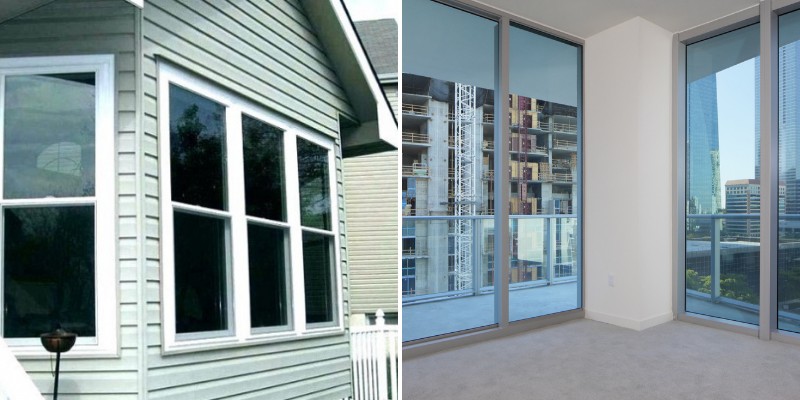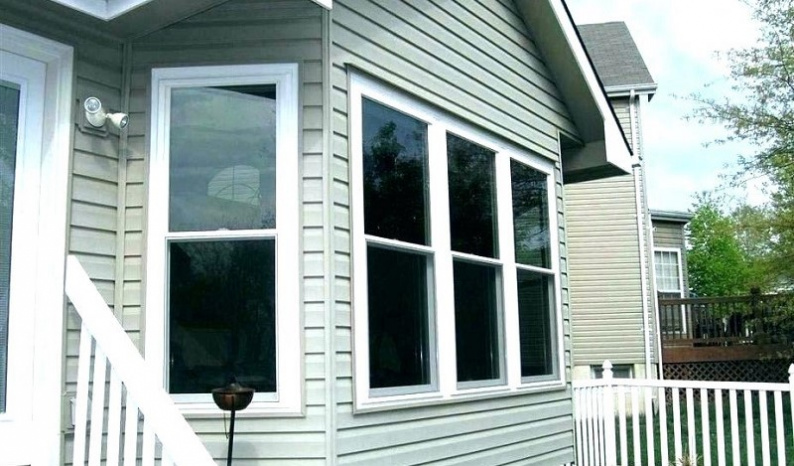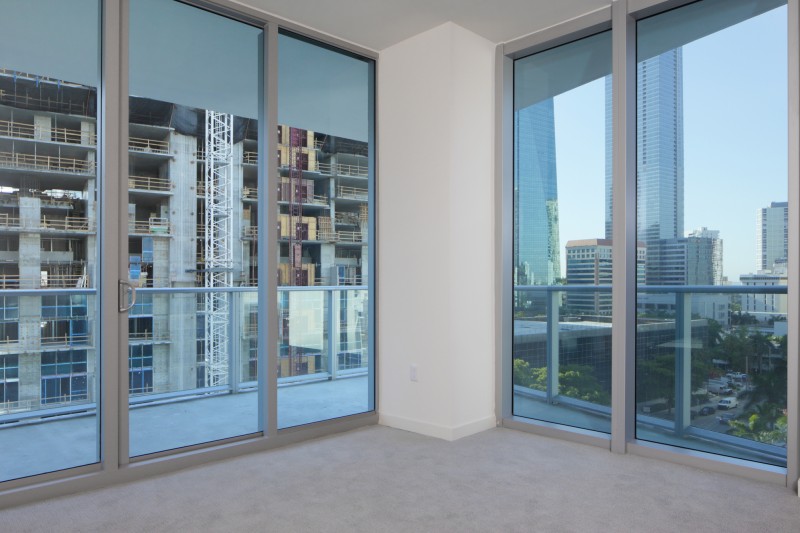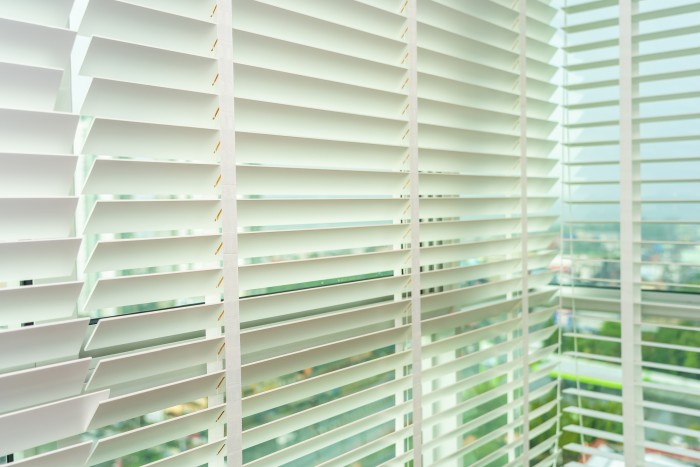Looking for a creative, appearance-changing solution for your home windows that won’t come close to the amount you would spend to replace them? Even Bob Vila of This Old House fame recommends window tinting.

But before you start getting material and labor estimates, it’s important to know how many benefits you derive from choosing film over traditional window treatments.
Yes, there are a few downsides, but they’re included here so you don’t run into surprises down the road that could obscure your view!
In this article we will discuss home window tinting, the advantages and disadvantages of tinted windows and also answer some frequently asked questions at the end of this article, so let’s get started.
What is House Window Tinting?
The capsulized explanation of window tinting hasn’t a thing to do with the traditional definition of tinting.
In color theory lingo, tinting is mixing colors with white or black to lighten or darken a color’s saturation.
A more apt description would be “filming,” a process that applies transparent sheets of film to glass that serves a multiplicity of solutions that range from decorative enhancement to security concerns.

Image Source: https://windowtintmcallen.com/
Like car window tinting, home window tinting comes in a variety of grades and applications, reason enough to read this entire article so you choose a solution that offers you the best result and value for your money.
5 Pros of Tinted Window Installation
- Improve your energy efficiency and lower your power bills by tinting your windows. Solar film absorbs and reflects up to 99-percent of the sun’s UV rays, say professionals at WindowFilmDepot.com, which is why so many homeowners prefer film over other window coverings. Once installed, your home’s interior temperature is easily maintained, you reduce or eliminate glare, save your upholstery fabrics from fading since they won’t get direct sunlight and tinted windows add to increase comfort while saving money.
- Increase your security and privacy. It matters not whether you live in a high or low crime area – burglars and thieves don’t discriminate and because the highest grade films are thick, an application of clear or silver security film picks up where your security system leaves off. Install it and it’s almost impossible to peer through windows. There’s more. Film can protect the glass should someone try to break in during a home intrusion by restricting damage to a crack rather than shattering the entire pane on which the film is applied.
- Adds a decorative touch to your windows. Once upon a time, decorative film was limited to clear or shades of neutral colors, but these days, the sky’s the limit. Dramatically change the way your home looks by exploring a bold color, etched design pattern, stained glass motif or adopt an opaque or frosted film that makes peeking into your windows an exercise in frustration. You could up the curb appeal of your home big time if your windows currently leave something to be desired and you’re considering putting your house on the market.
- Save money. Replacing windows is not only an expensive proposition but it’s an inconvenience, too. Film is available in many grades. Applying a tinted window film may cost as little as $2 to $4 per square foot if you purchase it at retail and install it yourself. Hire a professional and you will likely spend between $5 and $8 per square foot. According to the website ImproveNet.com, tinting a square window measuring 3-feet; 8-inches will run you between $40 and $280 if you do the job yourself, and you’ll have fun picking out the film, too. You may even be able to get energy tax credits, so weigh that possibility when you shop products.
- Easy to install. No union membership required to tackle this job on your own if you have the patience and desire to do so. The process is a breeze. You wipe your interior windows down with a lint-free cloth dipped in a mix of 1 teaspoon baby shampoo dissolved in a gallon of bottled water (do not use alcohol), cut the film to fit the space plus ½-inch on all sides using a utility knife and remove the backing. Starting at the top, smooth the film over the window surface, lightly misting as you go with baby shampoo solution to tamp down air bubbles. Allow the bond to cure for between 4 and 8 days — unless the manufacturer instructs you to cut or expand the curing time.

5 Cons of Tinted Window Installation
- Not every glass pane bonds to film. While most security and decorative film doesn’t thermally stress glass, some panes can’t tolerate it. For example, the International Window Film Association warns against installing solar film “because the film’s higher rate of heat absorption can increase the thermal stress so much on these types of window glass that they crack.” They recommend avoiding these 3 glass types if you intend to install film:
-Clear annealed glass thicker than ⅜-inch or that has a heat absorption rate of more than 50 percent
-Tinted annealed glass over ¼-inch thick
-Insulated glass that is over 10 years old or has had seal failures.
- Your window warranty could be voided. Sadly, many homeowners have no clue that this can happen to them until they suffer some sort of window damage and try to get restitution from the window maker that came with the window’s warranty. Bob Villa addresses this in his discussion of the invalidation of window manufacturer’s warranties as a result of applying film to panes. Some warranties cover this but others don’t, so carefully read the small print and ask the question before you sign the paperwork for your new window install.
- Tinting can diminish the power of the sun’s energy if you install it on windows that you rely upon for helping bring warmth to your room. For folks who live in cold climates or areas that are so hot, air conditioning runs perpetually, it’s important to understand that any film you apply to your windows you reduce the amount of sun that can naturally help warm your home. This can be avoided if you selectively tint only windows that purposely block the sun. Keep this in mind: window film can redirect as much as 80-percent of sunlight.
- Tinting could cost a bundle. Obviously the number and size of windows that you are considering tinting will determine the amount of film you need. According to Window Film Depot’s case studies, you could wind up spending thousands of dollars on a large and expansive job and you may not necessarily get any return on your investment since not every home buyer likes the idea of window film. Further, you could ruin the home’s view by picking a patterned film to cover expanses that look out at beautifully landscaped yards.
- Mess up the install process and you’re toast. For do-it-yourselfers who never met a project they didn’t “think” they could undertake, there are plenty of common, innocent mistakes that the most well-intentioned film installer makes that could turn the project into a nightmare. These errors include: Not double checking measurements, improperly cutting film, not buying enough film to do the job, leaving bubbles between film and the window and not cleaning windows properly before applying the film to the glass.
Is Window Tinting Better than Blinds?

It’s hard to define the word “better” when making comparisons because the choice between window tinting and window treatments or blinds often comes down to personal taste.
There’s a case to be made for both and these are the most often cited reasons for choosing one over the other:
- -Blinds reduce light and glare, are a traditional choice and new styles, designs and colors can be irresistible.
- -Blinds can be a pain in the neck to clean because they’re excellent at collecting dust, cobwebs, bugs and dirt.
- -Blinds don’t prevent solar heat from penetrating rooms; energy bills can be higher due to heat gain and energy loss.
- -Blinds aren’t an ideal privacy measure, even when secured properly.
- -Blinds don’t block UV rays nor stop fabric fading on interior furnishings – and wall art can fade, too.
- -Window film is typically more affordable than blinds, curtains and drapes and it’s very energy-efficient.
- -Window film is relatively maintenance free; it’s easy to apply and remove.
- -Window film is more hygienic because it doesn’t attract critters and dirt like blinds.
Does Window Film Provide Privacy at Night?
That can depend upon the film you choose, the location of your windows in direct proximity to streets and the position of your windows in direct relation to your bedroom.
If nighttime privacy is at or near the top of your must-have tint list, you may wish to consider blackout window films that ensure nobody can peek into your window.
That stated, if the window in question faces the street, blackout film could detract from your home’s curb appeal. Patterned or frosted films might better serve your purpose.
Is Tinting Residential House Windows Worth it?
Even jaded professionals agree that pros beat cons when deciding between window film and other window treatment options.
Once installed, window film can be maintained easily using regular window-cleaning products and some new film products are hitting the market with lifetime warranties.
Older windows benefit from window tinting most of all. From energy efficiency to aesthetics to the interior benefits you gain by blocking out sun, invest in a quality film and you’re not likely to suffer buyer’s remorse!
Resources
https://www.bobvila.com/articles/tinted-home-windows/
https://en.wikipedia.org/wiki/Tints_and_shades
https://www.improvenet.com/r/costs-and-prices/window-tinting-prices
Related Posts
- 15 Main Pros and Cons of PVC Decking – Comparison and Discussion
- 12 Different Types of Wood for Outdoor Furniture with Pros/Cons
- 11 Different Types of Natural Stone for House Exterior
- Advantages and Disadvantages of Composite Decking for Homes
- What Color Siding Goes With Red Brick? Design Ideas With Pictures
- 8 Unique Porch Ceiling Ideas for your Home (with Photos)
Your explanation as to how window tinting can help you enjoy better privacy and security was extremely helpful to read. We have a lot of large windows at home since we love looking outside and having a nice sense of space around the house, but I’ve always been paranoid about how easy they would be to break. Since window film can help me out with this, I’ll look around for any tinting contractors that can assist me in installing some.